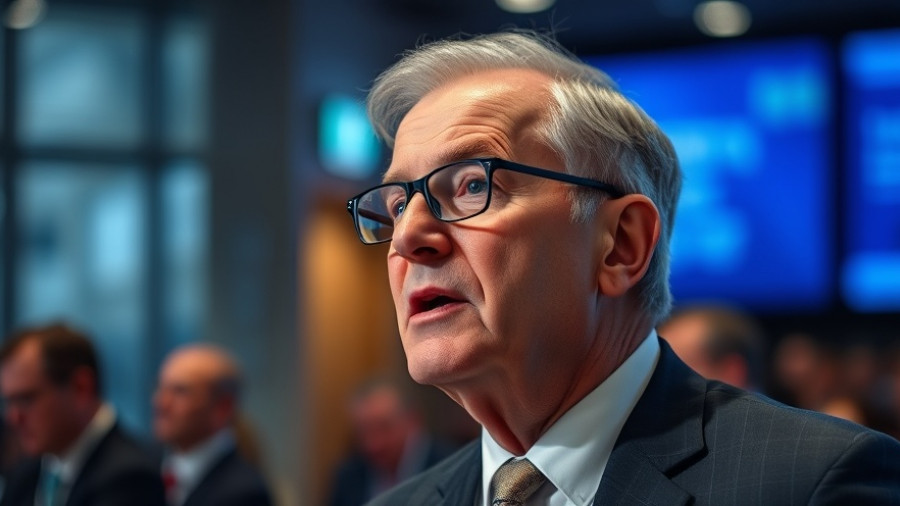
Bill Gates Advocates a New Strategy for Climate Change
Bill Gates, the co-founder of Microsoft and philanthropist, has taken a bold stance on climate change that deviates from conventional thinking. In a recent memo, he argues for a "strategic pivot," encouraging world leaders to focus more on improving human welfare rather than strictly limiting global temperatures. This follows Gates' longstanding commitment to addressing climate change while simultaneously tackling pressing issues like poverty and disease.
Gates' Evolving Perspective on Climate Issues
Throughout his career and philanthropic efforts, Gates has become a prominent voice in the climate conversation. His insights come ahead of the COP30 U.N. Climate Summit, underscoring his intent to influence global discussions on climate action. Gates suggests that while reducing carbon emissions remains vital, resources should be directed towards issues that significantly affect the lives of vulnerable populations.
Rethinking Climate Change Priorities
Gates emphasizes that focusing solely on climate metrics can detract from addressing immediate human needs. In his memo, he highlights that ongoing issues such as disease and poverty often pose a greater threat to the world’s most vulnerable. By advocating for a shift in priorities, Gates argues for a more integrated approach that considers multiple factors affecting human welfare.
Focusing on Innovations for Sustainable Development
Citing examples from his philanthropic work, Gates points to the potential for using innovations in agriculture, health, and energy to help overcome challenges associated with climate change. These interventions can improve resilience among communities heavily impacted by extreme weather and fossil fuel dependency.
Belief in Progress Despite Challenges
In his analysis, Gates acknowledges the undeniable reality of climate change but maintains an optimistic viewpoint regarding the future. He argues that humanity can still thrive despite potential crises, provided we invest in innovative solutions that can uplift impoverished regions while addressing climate change. Gates champions technologies that enable clean energy and sustainable agriculture, believing that these advancements will be crucial for long-term success.
Potential Criticism and Support for His Views
Gates’ perspective diverges sharply from those who contend that the climate crisis poses existential threats to humanity. Critics may view his remarks as insensitive or misaligned with the urgency to tackle climate change’s immediate effects. However, Gates counters this narrative by stressing the need for holistic solutions that incorporate health and development into climate strategies.
The Road Ahead: COP30 and Beyond
The upcoming COP30 summit presents a critical opportunity for world leaders to reconsider their preexisting frameworks on climate policy. By placing human welfare at the forefront, Gates believes the global community could create a more impactful and sustainable future for all. This reconfiguration of priorities might lead to greater investment in health systems and food security, ultimately enhancing resilience against climate risks.
Your Role in the Climate Conversation
The public response to Gates' memo will shape how climate action proceeds in the future. Engaging in conversations about climate policy may lead to increased public awareness and advocacy for making policies more inclusive of human welfare perspectives. Such discourse is essential to hold leaders accountable as they meet the challenges of climate change and the needs of their constituents.
In conclusion, Gates’ strategic pivot may offer a valuable perspective that challenges the status quo in climate action strategies and invites further discussion on effective solutions towards a resilient future. With renewed focus on human welfare, it’s essential for all individuals to consider how they can contribute positively to ameliorating both climate change and socio-economic challenges.
 Add Row
Add Row  Add
Add 



Write A Comment